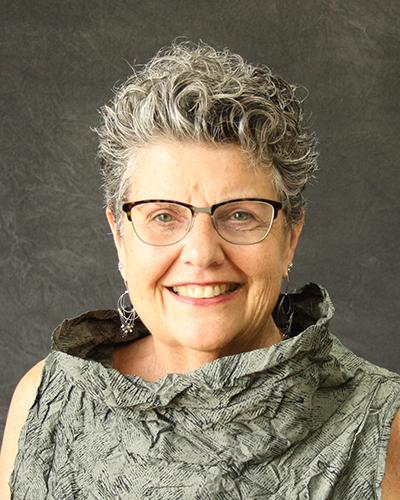Joan Beasley, PhD, Promoted to Research Professor

Institute on Disability (IOD) is proud to announce the promotion of Joan B. Beasley, PhD, to Research Professor at the University of New Hampshire. The promotion is granted to faculty who have a background in successful research, marked by maturity and experience that have earned them a national or international reputation in their field. UNH research faculty bring a substantial proportion of the university’s external funding, mentor graduate students, and deepen scholarly life across campus.
Beasley received her PhD in social policy at Brandeis University and is the author and co-founder of the START model. The START model, founded in 1988, is a cross-systems crisis prevention and intervention program used across the U.S. to improve the delivery of critical intellectual/developmental disability and mental health (IDD-MH) services and supports.
“Beasley’s work continues to elevate the work of the IOD and the National Center for START Services, promoting the meaningful inclusion and belonging of all people,” says Kelly Nye-Lengerman, PhD, Director of the Institute on Disability. “As Research Professor, she will continue to conduct research in IDD-MH to improve the quality of services and policy nationwide.”
Beasley has a rich and diverse scholarly portfolio which was rigorously reviewed by her peers in preparation for this promotion. She has published more than 50 articles, numerous book chapters, and policy reports and has led hundreds of presentations on the mental health aspect of intellectual disabilities nationally and internationally. Beasley’s service includes work as a subject matter expert for states and federal agencies, advisor to PhD students around the U.S., and consultant to crisis teams who provide critical life and community supports to people with complex emergency needs.
In addition to her new appointment, Beasley leads a team of researchers and people with lived experience of IDD-MH in a five-year study–the Patient-Centered Outcomes Research Institute (PCORI) grant–that compares in-person vs. telehealth crisis prevention services for youth/young adults with IDD. She also serves as Director of the National Research Consortium on MHIDD dedicated to research that aims to improve the well-being of individuals with IDD-MH, their families, and communities through inclusive, strength-based research.
“When you get a faculty appointment to full Research Professor, it’s a reflection on your commitment to the work and your commitment to teaching others the work,” says Beasley. “As a Research Professor, I want to make sure that I support the mission of the IOD in ensuring that the people we are meant to serve have a voice in the way those services are conducted.”
Beasley will be continuing the work she began with START 34 years ago, which includes mentoring and inspiring the next generation of IDD-MH service providers and focusing on future research and publications. “If you’re really making an impact, you have to be less and less visible over time,” says Beasley. “And I think that the most important thing to remember is our focus on humanity and we are all in this together.”